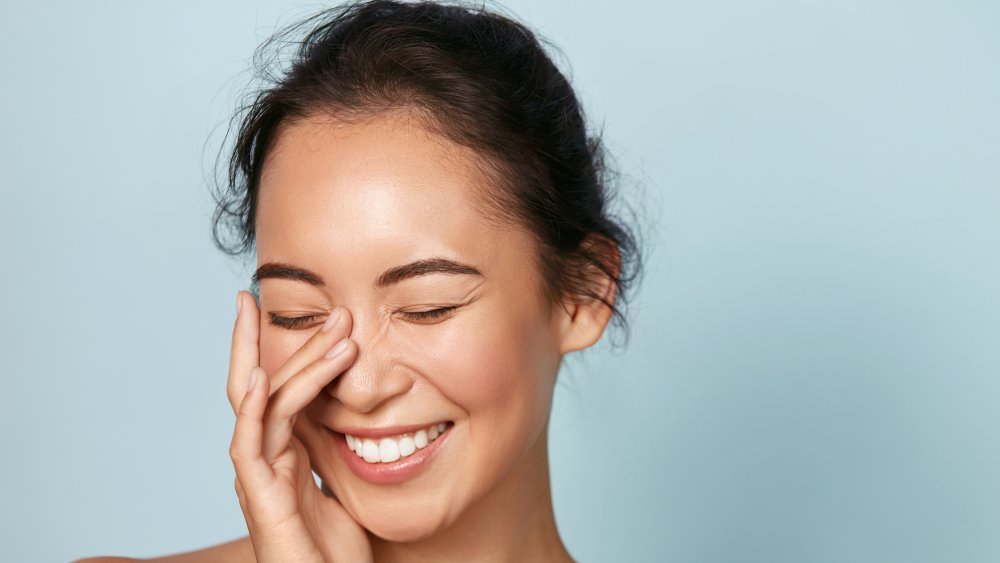When You Use Melatonin Every Day, This Is What Happens To Your Face
Some skincare products can make your skin look better fast. Feeling dry? Slap on a little moisturizer. Is that a pimple on the horizon, just waiting to take a knock at your confidence? Throw on an anti-acne mask. There may be plenty of quick fix products on the market to help our skin fight the good fight. But sometimes looking at the mile-long list of ingredients on the back of some of these products can leave us feeling wary. Luckily for us, there is an alternative. Using melatonin.
We know what you're thinking: isn't melatonin what one uses to help you fall and stay asleep? That's true, but it turns out there is a huge beauty bonus to this natural hormone as well. Melatonin is often provided in pill form, but new research has shown the hormone serves as a powerful antioxidant when applied topically on the skin (via Elle).
Using melatonin increases the skin's natural defenses
Our skin is constantly under attack from pollution and sun exposure creating harmful free radicals. Your body can produce antioxidant enzymes neutralizing these free radicals, and melatonin can help. Dermatologist Dendy Engelman, MD, explained to Elle, "melatonin stimulates your body's natural production of these enzymes." So awesome to hear we can contribute to the protection of our skin! So what is the benefit of using melatonin as a topical agent? Engelman reveals, "The outcome of using a topical melatonin at night is an increase in your natural defenses to fight free radicals caused by UV radiation, stress, and pollution the next day, as well as repair the damage done that day,"(via Allure).
It appears melatonin is having its breakthrough moment. But Kenneth Howe, a dermatologist at Wexler Dermatology warns, "More than other areas of medicine, skin care is subject to trends and fads. Many of these ingredients are mainly exciting simply because they're new; you're usually not missing out if you stick with an ingredient [that works for your skin]" (via Allure).

